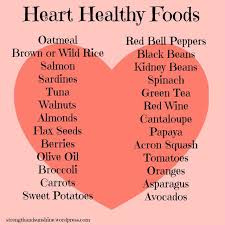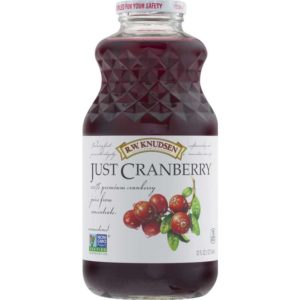
Diagnosed with Cancer? Your two greatest challenges are understanding cancer and understanding possible side effects from chemo and radiation. Knowledge is Power!
Learn about conventional, complementary, and integrative therapies.
Dealing with treatment side effects? Learn about evidence-based therapies to alleviate your symptoms.
Click the orange button to the right to learn more.
- You are here:
- Home »
- Blog »
- side effects ID and prevention »
- Cranberry Juice- Heart, Blood Pressure
Cranberry Juice- Heart, Blood Pressure

Researchers note that cranberry juice is rich in antioxidants — naturally occurring molecules in fruit, tea, wine and other foods — which have been associated with lower blood pressure in other studies…”
Beside the fact that the chemo did little to manage my cancer, I developed a late stage side effect called chemotherapy-induced cardiomyopathy (CIC).
Over the years I’ve developed a heart healthy lifestyle including nutrition, supplementation and lifestyle therapies. As odd as it may sound, cranberry juice is one of those heart-healthy therapies.
Not just any cranberry juice. You’ve got to drink cranberry juice without sugar in it. And without sugar, the juice will taste sour. I mean really sour. My solution? Mix the juice into other fruit juices that you normally drink.
By doing this you will:
- add antioxidants to every drink you add it to
- you reduce the calories because of the added cranberry juice
- you add flavor (sour flavor but flavor) to every juice you add it to
- most importantly, you are adding a heart-healthy, blood pressure lowering component-
I’m not saying that by doing this you can forget about whatever heart therapies you take. I’m saying that by including evidence-based, non-toxic heart healthy therapies such as
- cranberry juice as well as other heart-healthy foods
- supplementation such as quercetin, curcumin, resveratrol, etc.
- frequent, moderate exercise, sauna, etc.
you may be able to lower the dose of toxic heart meds/blood pressure meds. you are taking.
When I developed atrial fibrillation (A Fib) in late 2010, my cardiologist confirmed a diagnosis of CIC and promptly put me on metoprolol. I got very little sleep that first night on metoprolol and decided to stop that medication ASAP. I am not a cardiologist. Be sure to check with a medical professional.
I am not advocating a specific brand of cranberry juice. I am simply saying that UNSWEETENED cranberry juice is good for your heart, and can lower blood pressure.
I have been able to stabilize my chemo-induced cardiomyopathy with heart healthy nutrition and supplementation-
- Cocoa Powder- Heart, Brain, Bone Health
- Collagen-Skin, Muscle, Joint, Brain and Heart Health
- PQQ, Anti-Cancer, Pro-Heart Health
- Quercetin- Multiple Myeloma, Heart, Brain, Bone Health
- Cardiac Rehab-Lower Blood Pressure-Nattokinase
- Cardiac Rehab- Omega 3 Fatty Acids
- Cardiac Rehab – Curcumin, CVD, Heart Failure
I am saying that I have been managing my heart health ( CIC, blood pressure, A Fib, etc.) since late 2010 with a combination of non-toxic therapies. Cranberry juice being one of them.
If you have any questions about non-toxic therapies to manage CIC, A Fib, blood pressure, etc. send me an email. I will reply to you ASAP.
Thank you,
David Emerson
- MM Survivor
- MM Cancer Coach
- Director PeopleBeatingCancer
Recommended Reading:
- Multiple Myeloma Chemotherapy – Antioxidants Enhance Action
- Multiple Myeloma Therapy- Omega-3 Fatty Acids- Heart, Brain, Blood
- Heart Disease- Everything you need for heart-health
Cranberry Juice Fights Heart Disease
“Researchers have long suspected that antioxidant-rich cranberry juice may help lower risk of heart disease. However, this is the first study looking at the effects among people drinking the juice.
Besides heart disease benefits, previous studies have shown that cranberries can help prevent urinary tract infections and may reduce the risk of gum disease, stomach ulcers, and cancer…”
Low calorie cranberry juice lowers blood pressure in healthy adults, study finds
“In a study that measured the effects of drinking low-calorie cranberry juice, participants drank either low-calorie juice or a placebo drink every day for eight weeks as part of a controlled diet.
Blood pressure was measured at the beginning, mid-point and end of the study. After eight weeks, blood pressure values had significantly dropped from an average of 121/73 mmHg to 118/70 mmHg for those drinking the low-calorie cranberry juice. The placebo group showed no change.
Researchers note that cranberry juice is rich in antioxidants — naturally occurring molecules in fruit, tea, wine and other foods — which have been associated with lower blood pressure in other studies…”
Cranberries 101: Nutrition, Benefits, Uses, Side Effects, and More
“Cranberry juice made from concentrate offers about 70 calories per 8 ounces, plus 18 g of carbs and 26 percent DV of vitamin C, but no fiber, per the USDA. (6)
There are many other cranberry products, such as canned cranberry sauce and dried cranberries. The nutritional profile, including flavonoid content, changes depending on the product and its preparation method. Flavonoids are natural substances with antioxidant and anti-inflammatory properties, according to a review published online in December 2016 in the Journal of Nutritional Science. (7) Another study analyzed flavonoid content differences in fresh cranberries, freeze-dried berries, cranberry juices, cranberry sauces, and dried cranberries. The researchers found that the less processed the products were (as in homemade cranberry sauce versus store-bought), the higher the flavonoid levels. (8)


